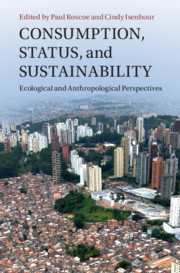Refine search
Actions for selected content:
6 results
14 - Practitioner’s Response to Manifesto 7
-
-
- Book:
- Thriving Sustainably on Planet Earth
- Published online:
- 09 January 2026
- Print publication:
- 19 February 2026, pp 198-208
-
- Chapter
-
- You have access
- Open access
- HTML
- Export citation
3 - Resources for Living
-
- Book:
- How to Fix a Broken Planet
- Published online:
- 15 January 2023
- Print publication:
- 05 January 2023, pp 28-43
-
- Chapter
- Export citation
11 - Innovation in the Canadian Mining Sector
-
-
- Book:
- Global Challenges for Innovation in Mining Industries
- Published online:
- 14 April 2022
- Print publication:
- 21 April 2022, pp 278-307
-
- Chapter
-
- You have access
- Open access
- HTML
- Export citation
11 - Ecological Routes to Social Status and Urban Inclusion
- from Part IV - Bending the Curve
-
-
- Book:
- Consumption, Status, and Sustainability
- Published online:
- 30 July 2021
- Print publication:
- 12 August 2021, pp 272-295
-
- Chapter
- Export citation

Consumption, Status, and Sustainability
- Ecological and Anthropological Perspectives
-
- Published online:
- 30 July 2021
- Print publication:
- 12 August 2021
8 - Clean Up Society
-
- Book:
- Earth Detox
- Published online:
- 15 July 2021
- Print publication:
- 15 July 2021, pp 196-223
-
- Chapter
- Export citation
